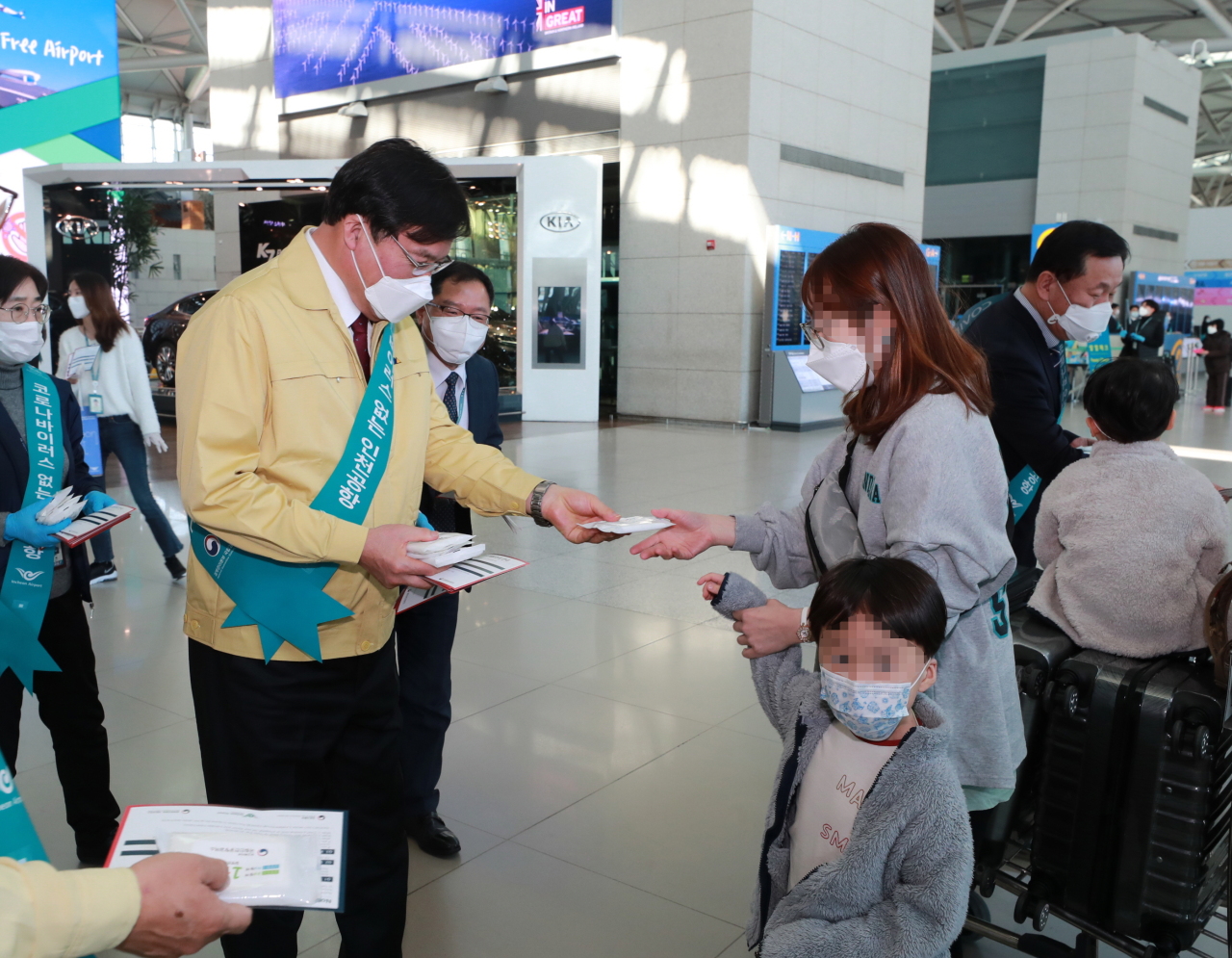 |
Incheon International Airport Corp. CEO Koo Bon-hwan (center left) gives out wet wipes with pamphlets on how to prevent coronavirus during the campaign to promote its stronger disinfection plans. (IIAC) |
Pledging to become a coronavirus-free airport amid the spread in South Korea, Incheon International Airport Corp. on Monday starts a full-fledged three-step temperature monitoring program on all outbound passengers.
The airport said the preboarding temperature checks, which have been running on a trial basis since Thursday, will officially begin as of 9 a.m. Monday as part of an effort to make the airport coronavirus free.
“As the gateway to Korea, Incheon airport will establish a rigorous disinfection system encompassing all arrival and departure procedures to boost safety and credibility and provide a safe environment to domestic, foreign travelers and employees stationed inside,” said IIAC President and CEO Koo Bon-hwan at the “COVID-19 Free Airport” declaration ceremony held in Millennium Hall at Terminal 1 on Thursday.
The three-step monitoring program includes the following stages.
First at terminals, airport personnel check passengers’ temperature with thermal imaging cameras. Next, military personnel repeat the process in the departure areas on the third floor. Finally, at boarding gates, airliners check passengers’ temperature again with handheld, noncontact infrared thermometers.
At terminals, the airport will guide passengers with above 37.5 degrees Celsius temperature to a quarantine station installed inside the airport for a contact investigation.
On the departure floor, the airport will guide passengers with temperatures over 37.5 C to airliners to have their temperature checked in the check-in counters or help with their ticket cancellations if their international routes are restricted to people with fever.
At boarding gates, airliners can check temperatures of passengers whose international routes are restricted to people with fever. Passengers with fever can be rejected from getting onboard. The monitoring is currently enforced on international routes to the United States, China and the United Arab Emirates.
Terminal 1 has five checkpoint stations at its entry and three checkpoint stations on the departure floor while Terminal 2 is equipped with three and two checkpoint stations each.
Also, the airport plans to strengthen its disinfection efforts in major facilities on the departure floor, including special sterilization on its check-in counters and disinfection of its security search equipment three times a day. Elevators and escalators, where direct contacts are made by passengers, will be sterilized by alcohol three times a day instead of once.
By Kim Byung-wook (
kbw@heraldcorp.com)








